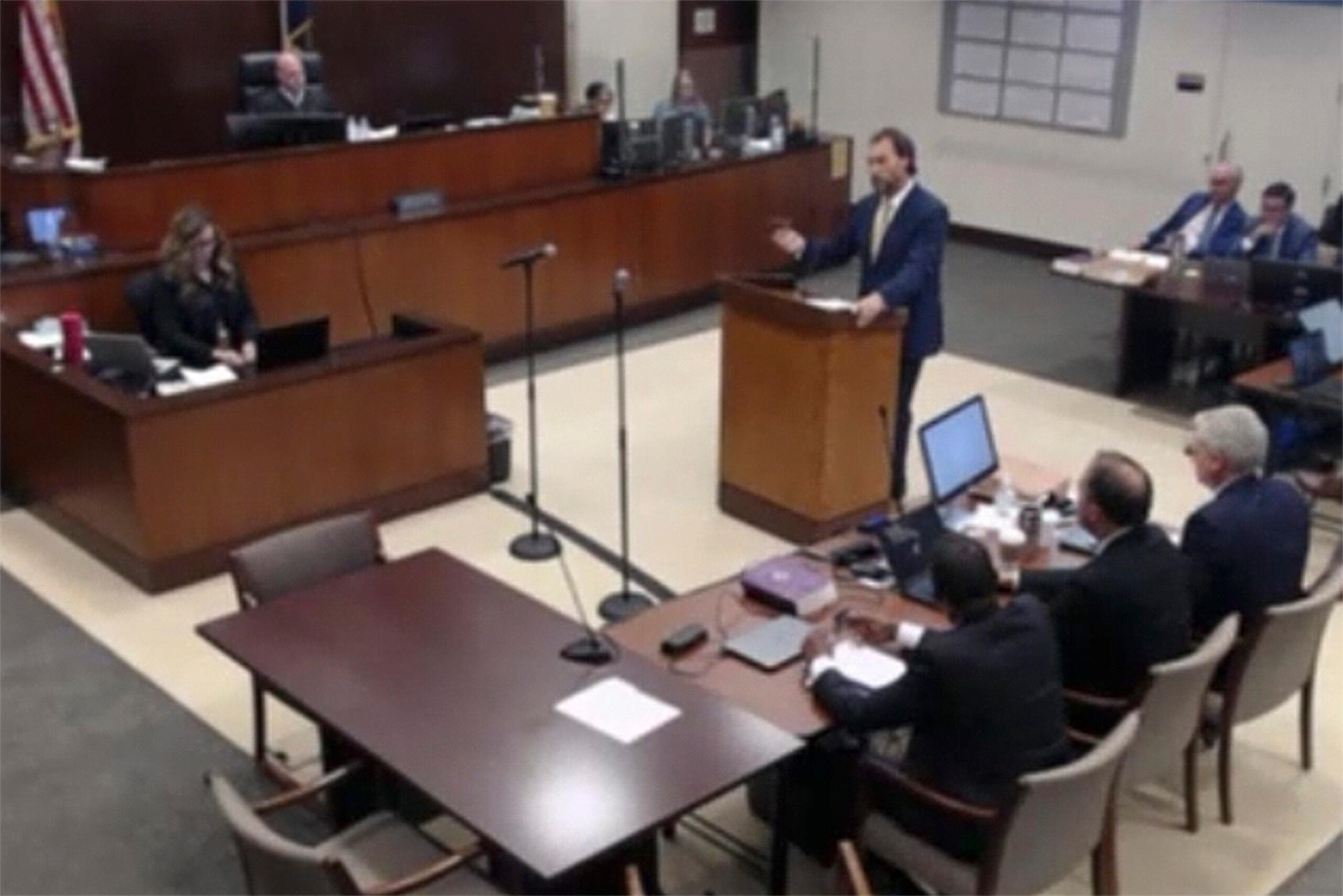
After watching hours of body worn camera footage and consulting with medical experts, Aurora police officers and reviewing pages of medical records, Adams County forensic pathologist Dr. Stephen Cina still can’t make up his mind.
Cina told jurors on Tuesday that Elijah McClain inhaled and choked on vomit, likely both on the ground when he was struggling with officers and wearing a mask and also in the ambulance when he was lying prone on a gurney after receiving a dose of ketamine.
He’s not sure which aspiration could have been lethal - if it was lethal.
Cina also told the jurors that “more likely than not” McClain, 23, would have recovered “if not for the ketamine.”
Both prosecutors and defense attorneys, at times, seemed slightly frustrated and flummoxed by Cina’s clear lack of decision on why exactly McClain died.
Cina is a contracted forensic pathologist for Adams County. The elected coroner, Monica Broncucia-Jordan is not a medical doctor.
Cina issued his original autopsy on McClain in November 2019, about two and a half months after McClain was declared brain dead at University of Colorado Hospital days after his encounter with Aurora police on Aug. 24, 2019. That report detailed a number of things that went wrong in McClain’s 18-minute struggle with police that could have contributed to his death, including aspiration of vomit that caused hypoxia, a severe reaction to ketamine that caused cardiac arrest or lactic acidosis caused by exertion with his struggle with police.
But he told jurors on Tuesday that he wrote that report without seeing all the video evidence he initially asked for -- including body worn camera footage that clearly shows McClain deeply sedated within a minute of receiving ketamine.
He said that evidence sparked a very unusual move on his part: He changed the autopsy from an “undetermined” cause of death to “death by ketamine after forcible restraint.” The manner of death is still undetermined.
That amendment to the original autopsy technically implicates all five defendants who have been charged criminally with McClain’s death by state prosecutors.
Three officers who had the most contact with McClain that night, Randy Roedema, Jason Rosenblatt, who are amid their trials now as co-defendants, and Nathan Woodyard face manslaughter charges, as do the two paramedics who administered the ketamine. Those two trials are scheduled later this year.
But when pushed by both sides on Tuesday to pinpoint what went wrong, Cina balked.
“I can neither say with medical certainty or exclude the possibility that the (police) restraint played a role,” Cina said to the jury. “If I was convinced it did, I would call it a homicide. If I was convinced it played no role, I would call it an accident. But since I’m unsure, I called it undetermined.”
Prosecutors played body camera footage showing an unspeaking, catatonic McClain before he received the ketamine. Defense attorneys kept pointing out his original reports, noting that McClain didn’t have any serious bodily injuries, broken ribs or internal bleeding.
Cina told attorneys that when there are so many possibilities, he feels more comfortable with what he noted in his reports — and that he may be in the minority for his views. He said out of about 550 autopsies a year he conducts two to three of them are undetermined, on average.
“I believe some forensic pathologists would consider this whole case an accident. I believe some forensic pathologists would consider this whole case a homicide,” he said. “I’m in between saying the restraint may have done something, but that’s not enough for me to make it a homicide.”
This makes it difficult to both defend any of the defendants and also prosecute them criminally for McClain’s death.
Also on the stand on Tuesday was another Aurora Police officer on the scene that night, Alicia Ward, who testified that even though she had her hands on McClain in the last moments he was conscious, she didn’t think it was unusual enough to alert the paramedics that he was in distress.
“I wasn’t concerned,” she told the jury. “I thought it was under control based on the medical people being on the scene.”









